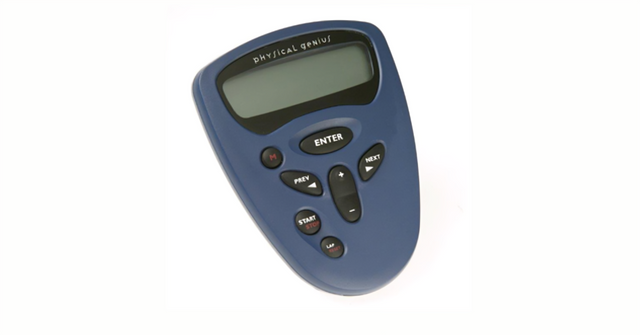Why Reliable Electronics Components are Vital for Precision Medical Devices
In the world of modern healthcare, precision medical devices are indispensable. From life-saving equipment like pacemakers to advanced diagnostic tools such as MRI machines, these devices require the highest level of accuracy and reliability. This precision is largely dependent on the quality and reliability of the electronic components used within them. Whether it's sensors, capacitors, or printed circuit boards, each component plays a crucial role in ensuring the safe and effective operation of these medical devices. We’ll explore why reliable electronic components are vital for precision medical devices.
Role of Electronic Components in Medical Devices
Medical devices, both diagnostic and therapeutic, rely heavily on electronic systems to function. Electronic components are the building blocks of these systems, responsible for critical operations such as power supply, signal processing, data transmission, and user interface control. Given the high-stakes environment in which medical devices are used, any malfunction can lead to serious consequences, including misdiagnoses, treatment errors, or device failure.
For instance, in a heart monitor, the sensors and circuits must work seamlessly to record accurate data. Any failure in these components could lead to incorrect readings, potentially putting a patient's life at risk. This makes the selection of reliable electronic components non-negotiable in the medical field.
Accuracy and Performance
One of the most important aspects of medical devices is their ability to deliver precise, real-time results. Devices such as glucose monitors, blood pressure machines, and imaging tools must provide exact data to allow healthcare professionals to make informed decisions. The accuracy of these devices is directly linked to the reliability of the electronics components used.
High-quality resistors, transistors, and capacitors, for example, ensure that the device’s circuits maintain stable performance over time. This means they can handle fluctuations in temperature, humidity, and other environmental conditions without compromising their function. Unreliable components, on the other hand, can lead to data inaccuracies, which in medical applications, can have disastrous outcomes.
Durability in Demanding Environments
Medical devices often operate in harsh and demanding environments. They are exposed to varying temperatures, mechanical stress, moisture, and sometimes even bodily fluids. Moreover, many devices are expected to function continuously without interruption. For this reason, the reliable electronic components used in these devices must be durable and resilient enough to withstand these challenges.
For example, a wearable defibrillator must function reliably in different weather conditions, whether a patient is indoors or outdoors. If the electronic components fail to work in extreme temperatures or high humidity, the entire device could malfunction, leading to potentially life-threatening situations. Therefore, reliability in diverse conditions is key when selecting components for medical equipment.
Longevity and Lifecycle
Medical devices are often expected to last for many years. Whether implanted inside the body or used in hospital settings, these devices undergo strict regulatory approval processes to ensure their long-term functionality. Electronic components that degrade quickly or have short life cycles can compromise the overall lifespan of the device.
For instance, pacemakers and implantable defibrillators are meant to function within the body for years without needing replacement. Components such as batteries, sensors, and microprocessors must be carefully selected for their longevity. Any failure in these parts could result in costly surgeries or other invasive procedures to replace malfunctioning devices. Hence, the use of durable and long-lasting components can extend the lifecycle of medical equipment, reducing the need for frequent replacements and ensuring patient safety.
Regulatory Compliance and Safety Standards
The medical industry is one of the most highly regulated sectors. Medical devices must adhere to strict safety and performance standards set by regulatory bodies such as the FDA, CE, and ISO. These standards not only ensure the safety of the patient but also the reliability of the equipment being used. To meet these stringent regulations, manufacturers need to choose electronic components that are compliant with industry standards.
Choosing substandard or uncertified components can lead to device recalls, lawsuits, and loss of trust from healthcare providers and patients alike. For this reason, only high-quality, certified components are used in medical devices, ensuring that they pass rigorous testing and meet all regulatory requirements.
Role of Advanced Technology
With advancements in medical technology, the demand for innovative and precise electronic components has never been higher. Devices like robotic surgical tools, AI-driven diagnostics, and wireless monitoring systems rely on cutting-edge electronic parts to function optimally.
As the complexity of medical devices increases, so does the need for more advanced electronic components. Miniaturization of parts, improved energy efficiency, and enhanced data processing capabilities are now essential for many medical devices. Reliable components that are able to integrate these advanced technologies ensure that medical devices not only meet today’s requirements but are also prepared for future innovations.
The Cost of Unreliable Components
While high-quality electronic components may come at a higher price, the cost of using unreliable ones is far greater. A single component failure in a medical device can lead to significant financial losses, including the cost of repairs, legal liabilities, and damage to the company’s reputation. More importantly, unreliable components can lead to patient harm, which can have severe ethical and legal consequences for healthcare providers and device manufacturers.
By investing in reliable components from the outset, manufacturers can avoid costly recalls, reduce the likelihood of device failures, and ultimately ensure the safety and well-being of patients.
Reliable electronic components are the backbone of precision medical devices. They play a crucial role in ensuring accuracy, durability, and longevity, which are essential for the proper functioning of life-saving equipment. From meeting regulatory standards to enabling advanced medical technology, these components are integral to modern healthcare systems. For device manufacturers and healthcare providers, the importance of choosing high-quality, reliable components cannot be overstated. Investing in the right electronic parts not only improves device performance but also ensures patient safety, long-term device functionality, and compliance with industry standards.
